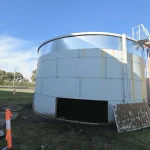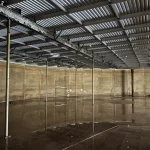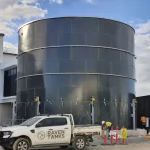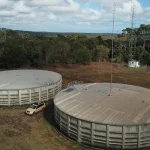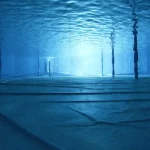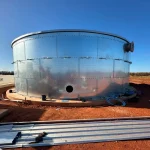Keeping your fire protection systems in top condition is a non-negotiable responsibility for any facility owner in Melbourne. The AS 1851:2012 standard outlines the procedures for maintaining fire protection systems, including fire water tanks. Regular, compliant inspections not only enhance fire readiness but also ensure legal and insurance compliance.
For a deeper dive into the role of AS 1851 in fire protection systems, see our detailed article: AS1851-2012 Fire Tank Inspections: Ensuring Compliance and Fire Readiness.
What Is AS 1851:2012?
AS 1851:2012 is an Australian Standard that prescribes the routine service of fire protection systems and equipment. For fire water tanks, the standard covers:
- Inspection intervals.
- Cleaning and maintenance.
- Component testing.
- Record keeping and reporting.
Compliance with AS 1851 ensures that fire water storage systems are functional, safe, and ready to operate in the event of an emergency.
Why Melbourne Facilities Must Comply
Melbourne’s regulatory environment makes AS 1851 Compliant Inspection Melbourne essential for:
- Insurance validation – Non-compliant fire systems may void insurance policies.
- Legal responsibility – Failing to maintain your fire water tanks could breach building codes and workplace safety laws.
- Public safety – A faulty tank can compromise your fire suppression system and endanger lives.
Step-by-Step Fire Tank Inspection Process
Here’s how AS 1851 compliant inspections are typically carried out by certified professionals in Melbourne:
- Visual Assessment – Inspectors check for visible signs of wear, rust, corrosion, and structural integrity issues.
- Internal Inspection (Every 5 Years) – The tank is drained and entered (if safe) or inspected using ROVs (remotely operated vehicles) to assess lining, sediment levels, and internal components.
- Cleaning & Sediment Removal – Built-up sludge or debris is removed to ensure water purity and fire system efficiency.
- Component Testing – Inlets, outlets, valves, floats, and overflow devices are tested for proper operation.
- Leak Detection & Repairs – Any detected leaks are addressed immediately using approved repair methods and materials.
- Documentation & Reporting – A compliance report is issued, detailing all findings, maintenance actions, and follow-up recommendations.

How Often Are AS 1851 Fire Tank Inspections Required?
| Inspection Type | Frequency |
|---|---|
| Visual External | Monthly / Annually |
| Internal Structural | Every 5 Years |
| Component Testing | Annually |
| Cleaning & Sludge | As Required / 5-Year |
Choosing the Right Inspection Partner
When selecting a Melbourne-based service provider, look for:
- Certified experience with AS 1851:2012.
- Confined space entry certification.
- ROV technology for non-invasive inspections.
- Full-service: inspection, cleaning, repair, and reporting.
Stay Ahead of Compliance
Ignoring tank inspections can result in serious consequences. Staying on schedule with AS 1851 compliant fire tank inspections protects lives, assets, and your legal standing.
Book an AS 1851 compliant inspection in Melbourne today. Our qualified team provides comprehensive fire tank inspection, cleaning, and maintenance services tailored to your facility’s needs.
Contact us today at 1800 770 899.

